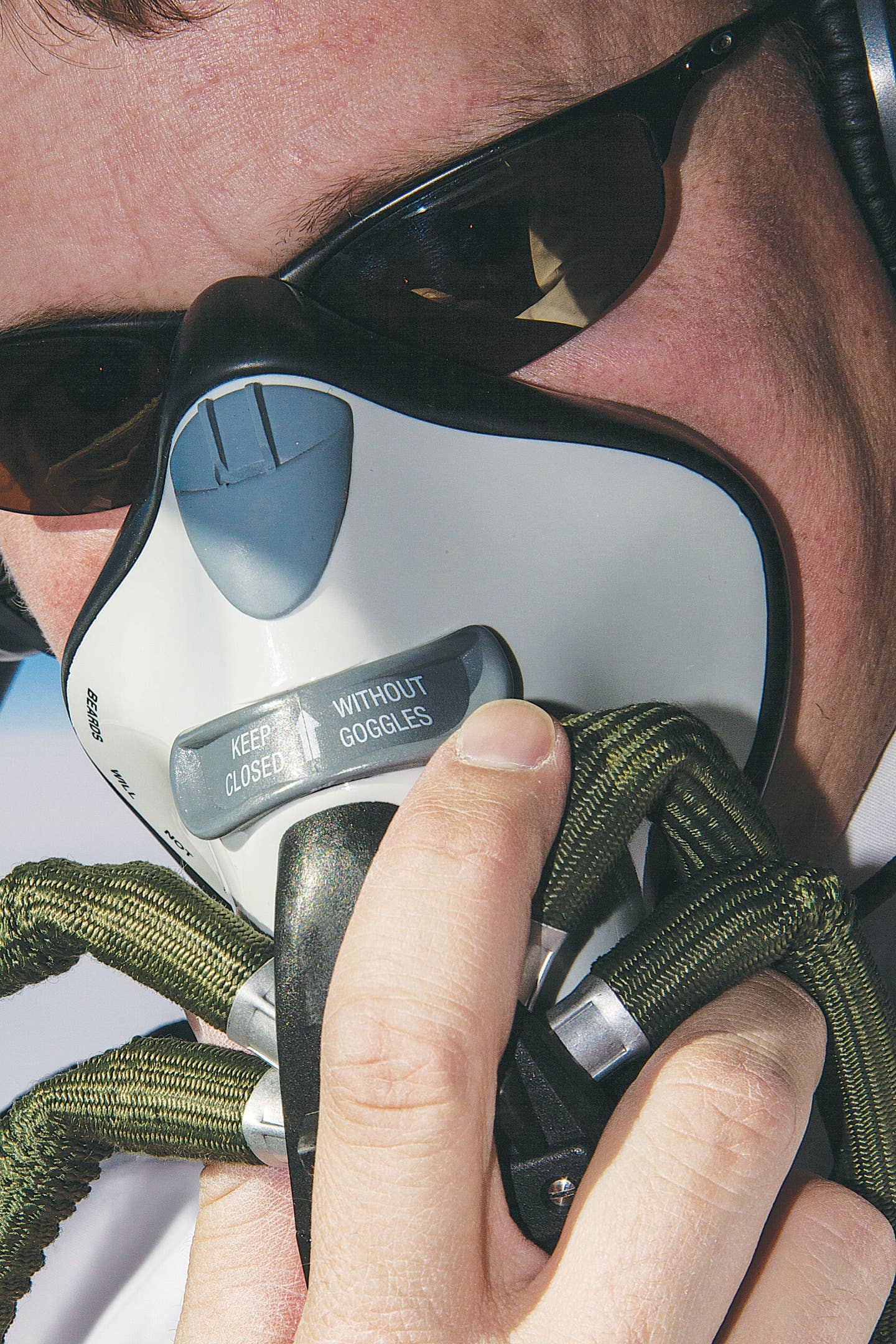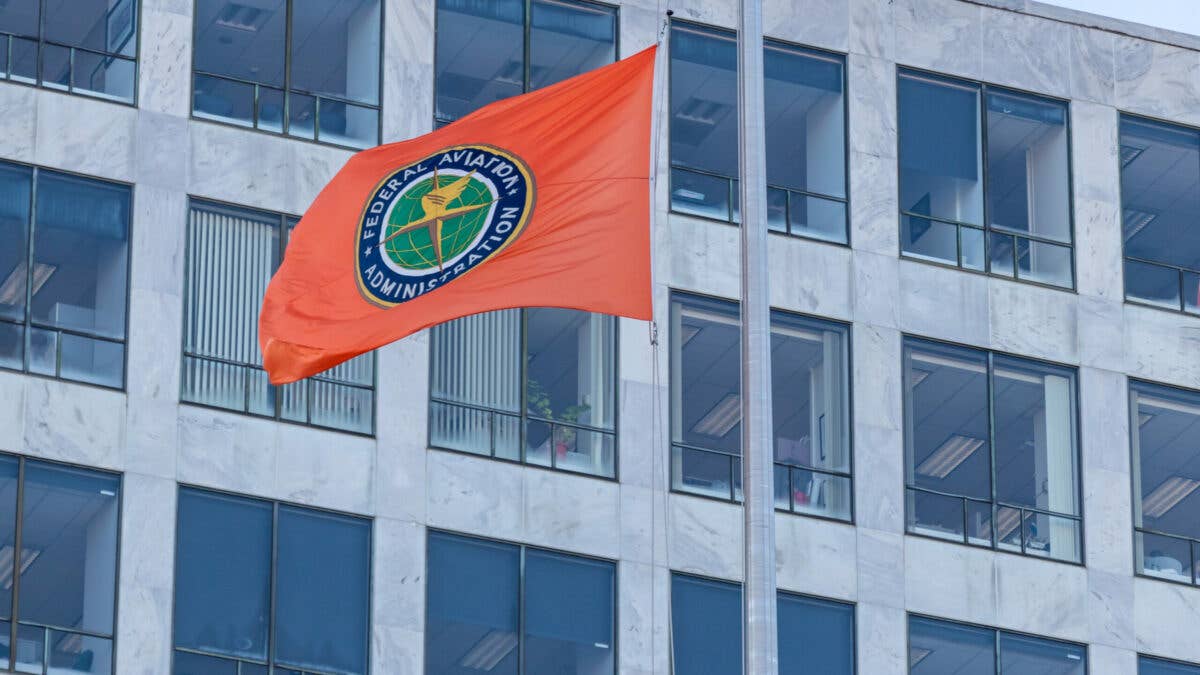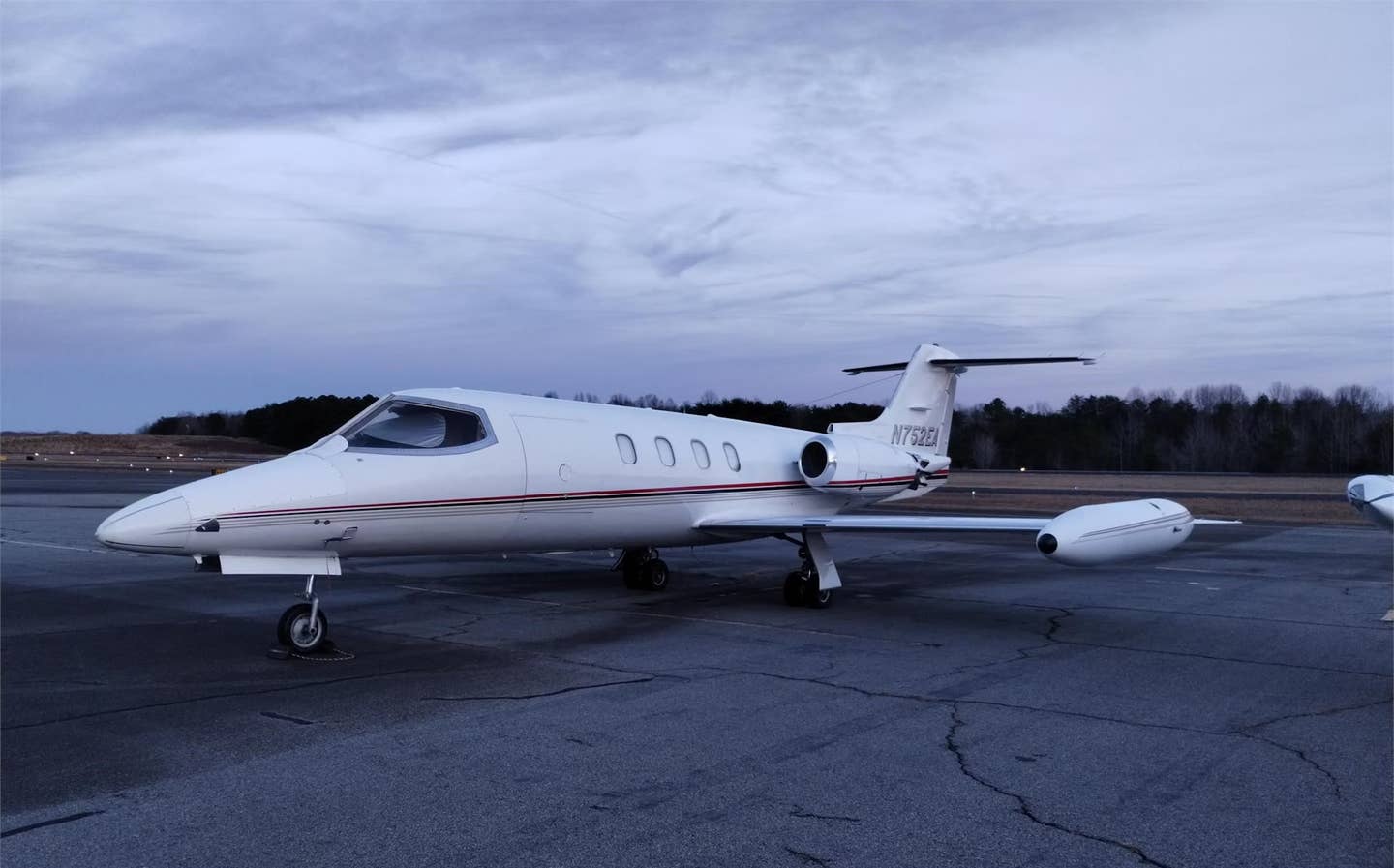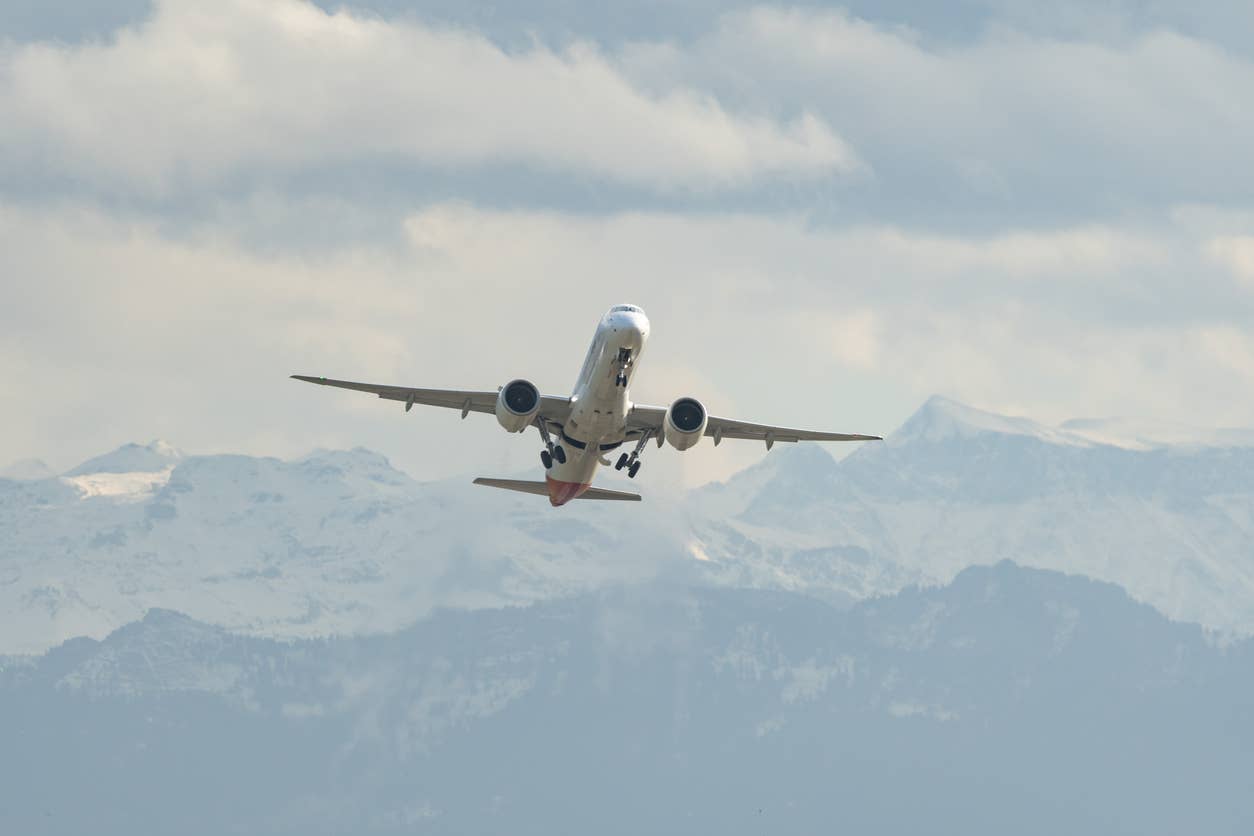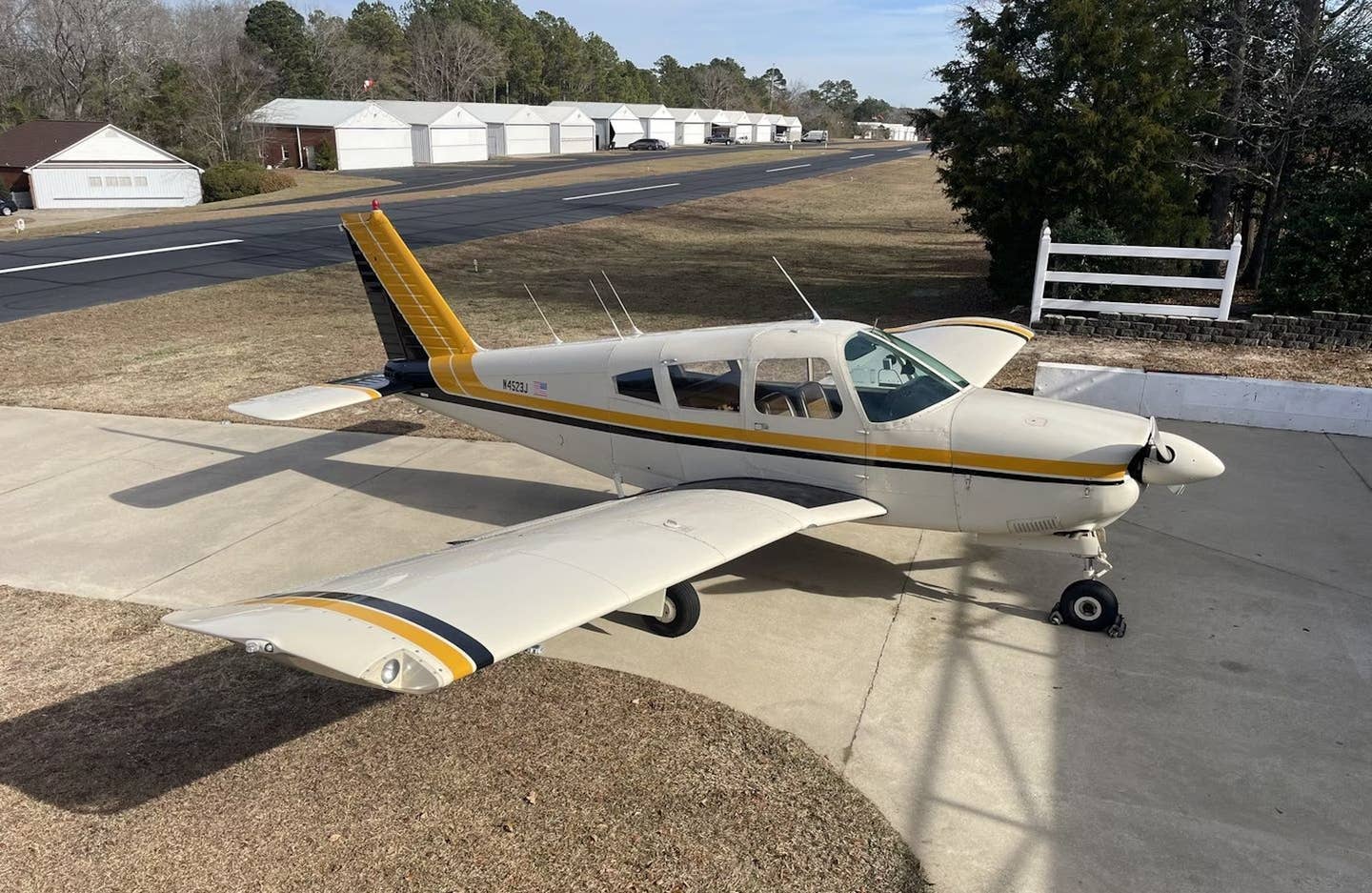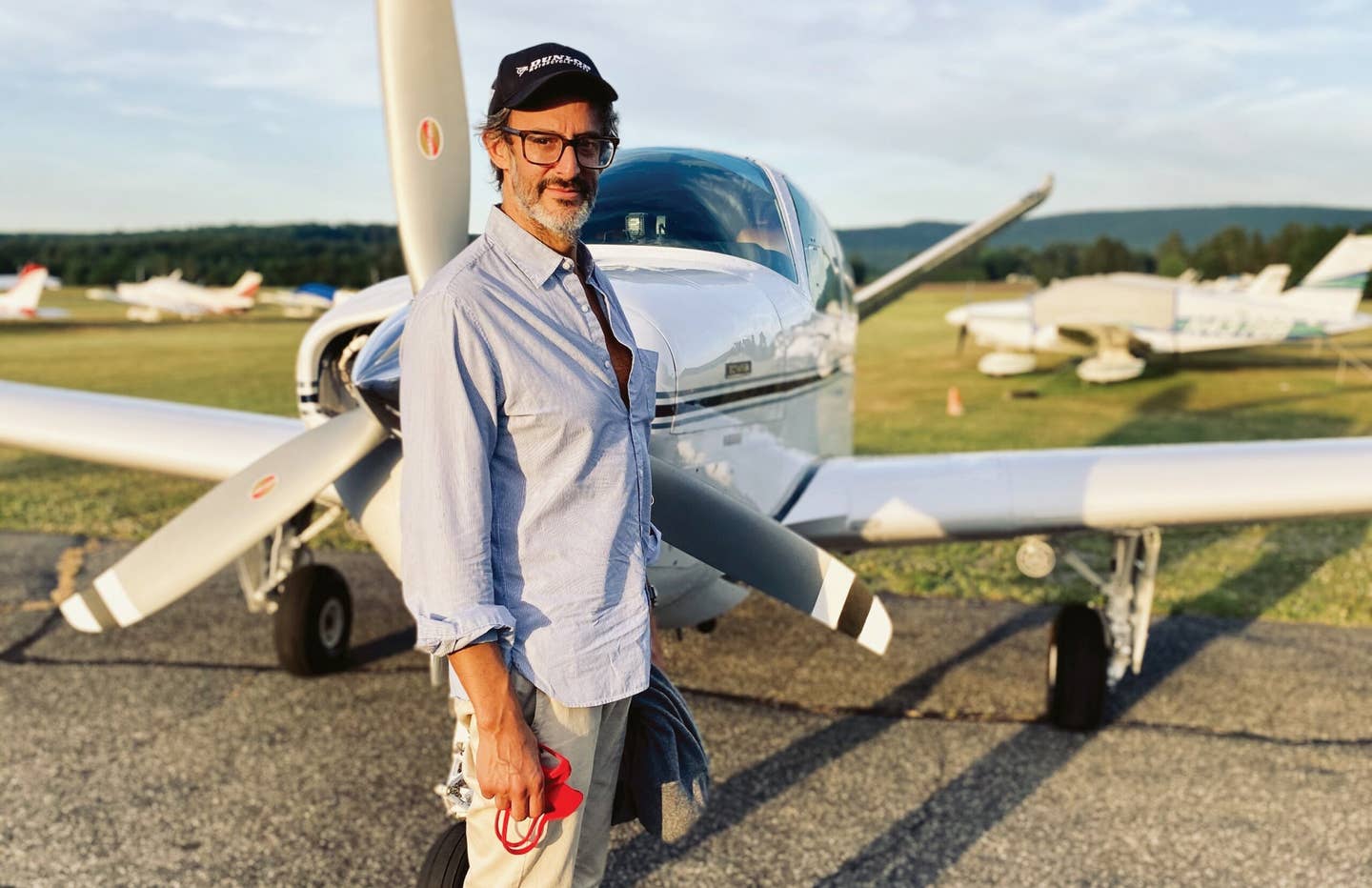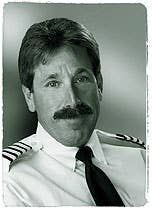
My copilot had begun the "Before Starting Engines" checklist. "Rudder pedals and seats?" he challenged.
"Adjusted and locked," I responded without emotion.
"Oxygen masks, interphone and goggles?" my copilot continued.
"Set and checked," I mumbled.
"Weapon?"
"Safetied and secured," I answered while patting the leather holster on my left side.
Okay, let's stop the checklist. Did anybody just take a big gulp? Well, I did. By the time this column is in print, my airline may be rewriting our checklists. At the very least, we will be developing policies and procedures to accommodate armed pilots in our cockpits. Loaded weapons in a confined space? Loaded weapons in one of the most vulnerable parts of a highly technological machine? Is anybody having a problem with this concept? Firing a weapon requires a tremendous amount of responsibility. The government is now giving me that responsibility. The consequences of poor judgment can be deadly. Choosing not to participate is also my option, but there's one problem: I have to trust the judgment of the other pilot. If the other pilot errs in judgment I have no recourse. There are no dual controls on a 40-caliber Glock.
I just looked at my FAA license. It states that I can exercise the privileges of an airline transport pilot. I looked on the back of the license. I read: Airplane multiengine land. Airplane singe engine land. B-727. B-757. B-767. Nope. I could not find my law enforcement rating.
Guns seem to attract guns. How many times have you read newspaper accounts of cop shootings, on-duty and off-duty? My friend has been a cop in Miami for 25 years. When it comes to handguns, he is an expert. His biggest fear is not being shot by a bad guy, but rather that he could be shot by a good guy. My friend has "friendly fire" stories that will curl your hair. Even with his years of experience and training, he is quick to acknowledge a very important factor when it comes to firing a gun for real. Adrenalin and fear can reduce judgment and accuracy in a split second.
So now that the world knows we may be packing heat, will my crew be targets for those with equal, deadly force? My cop friend makes an interesting point on this subject. He relays stories of police officers being shot by their own weapons. Unfortunately, it happens all the time. My friend offers an argument against an airline pilot having a loaded weapon in the secure area of the airport terminal. The bad guys now have access to the weapon. All they have to do is take us out of the picture.
If I carry a gun, will I be tempted to be a hero when the guy with the ski mask runs out of the convenience store? We all have our hobbies. Some of my colleagues enjoy the skill involved with firing a weapon. Remember Richard Crafts from Connecticut? He murdered his wife and put her through a wood chipper. Crafts was an auxiliary cop for a local police department. He was also a pilot for Eastern Airlines.
Recently, I flew a trip where we boarded a group of about 20 middle-aged guys traveling from Chicago to Miami. They were a bunch of overly happy Chicago Bears fans, if you catch my drift. Any one of these guys was big enough to push our 757 back without assistance from the tug. If I had possessed a weapon at that time, and if they had caused a disturbance in the back, I could have shot one. After all, interference with an airline crewmember is a felony.
Do we completely throw out the old book? Remember the one they had airline pilots cooperating with the hijacker in an attempt to negotiate? In the '60s and '70s we had a few unscheduled flights to Havana. With some exceptions, nobody got hurt. Perhaps now it's better just to shoot first and ask questions later. I guess none of the normal lunatics board planes anymore.
Okay… I know what you're thinking. No matter what the circumstance, airline pilots are to remain behind that cockpit door. Sure. That works in theory. But how many of us will be willing to ignore the shrieks of a desperate flight attendant? Would a loaded weapon make that scenario any less painful?
Debating the probability of another terrorist attack like September 11th is a waste of time. It could certainly happen. I watched in horror with the rest of the world on that day. My copilot and I were in Los Angeles, en route to the airport. We were to fly back to JFK. The N-numbers of the two airplanes my airline lost on that tragic day were both past entries in my logbook. Regardless of the emotional shock, I could not deny the diabolical ingenuity of the hijackers. Now that out cockpit doors are reinforced, requiring an operational secure procedure to open from the cabin, and now that we can carry weapons, do you think terrorists will use ingenuity again? Do you think my weapon will make a difference?
Forget about the philosophical arguments for a moment. Let's say that the terrorists get through the cockpit door. I reach for my weapon. Where is it anyhow? If it's on my person, it will probably be in a shoulder holster. I am right-handed. I will be pulling the gun out from my left side. Assuming I have any time to react, I will swing the gun backwards toward the threat. Bang! I shot my copilot as my arms extended across the center pedestal. I have a lot of adrenalin. I'm nervous. No problem. Maybe the terrorists will still be waiting for my next bad shot. What if the copilot draws first? What if we both draw at the same time?
Remember Crocodile Dundee? Remember the scene where he is threatened with an oversized knife? We expected Crocodile Dundee to pull out a knife of equal size, but instead he draws a gun. We all laughed, but there's a lesson in the humor. It's a reality check. My cop friend told me he was trained on the "rule of 21." He was told that if the average bad guy has a knife and was intent on doing serious harm, you needed at least 21 feet of distance to draw your weapon and fire. To quote my friend, "That would make having a gun in the cockpit irrelevant."
What about political aircraft damage? We're all smart enough not to believe the bad airplane movie scenario. You know the one where a 250-pound man gets sucked out of the airplane through a bullet hole in a passenger window. That scenario is ridiculously funny, but there are some serious logistics to work out in the real world. These logistics have to be addressed, as mandated by the TSA's federal flight deck officer program. Here are the issues. I've condensed them from the actual Home Security Act, signed by President Bush.
• Type of firearm to be used • Type of ammunition • Training standards required to qualify and requalify • Placement of weapon • Risk analysis regarding effects of weapon discharge onboard an aircraft • Division of responsibility between both pilots if one or more is qualified • Procedures for ensuring weapon does not leave cockpit if pilot enters cabin for personal reasons • Interaction of pilots and federal air marshals • Pilot selection and background check process • Storage and transportation of weapon • Airport security procedures for pilots with weapons • Other law enforcement identification on board • Any other issues the Under Secretary considers necessary
Does this list sound like a lot of loose ends? The TSA has 90 days. By the time you read this column all of the issues should have been addressed. I have my doubts.
There is also a significant flaw in the federal flight deck officer program. The government has left out the pilots of the cargo carriers. They operate virtually the same equipment as passenger airlines. Does that mean that a fully fueled 767 loaded with overnight letters won't make the same explosion as a 767 loaded with people? Perhaps our pilot brethren at the cargo carriers cannot be trusted with a loaded weapon.
Who pays for our training? In theory, Uncle Sam. That's good news, assuming Congress has allocated the money. At least the airlines won't have to add another surcharge to a ticket, although they will have to pay pilots for our missed trips when we attend training.
Does carrying a loaded weapon really make us the last line of defense? I read an article about the Israeli philosophy. The article discussed the terrorist issue, having interviewed a former security minister. The security minister had noted a fundamental diffrence between the U.S. method and the Israeli method of screening for terrorist threats. Whereas the Israelis concentrate on people boarding the airplanes who may have the intent toward terrorism, the United States concentrates it efforts on finding the tool that carries out terrorism, i.e. luggage screening, wanding, etc. This is not to say that Israel doesn't use electronic screening methods, but rather it focuses a lot of attention on good old-fashioned body language. And yes, it utilizes the politically incorrect profiling method. And yes, Israel has only one major airport, but ELAL travels out of the country. Do you think they rely on foreign security to protect their passengers?
As a side note, my airline has the unfortunate distinction of having boarded the shoe bomber. Israeli air marshals had tracked Richard Reid on other flights before his famous performance. Somehow, security still broke down. Apparently we had refused him boarding the day before. We put him up in a hotel for his troubles and then allowed him to board the next day. You know the rest of the incredible story. Wiould a gun in the cockpit have changed the outcome?
Do I have an alternative solution to guns in the cockpit? Yes. Continue to perfect all of the surrounding security issues. Begin the security process from the moment a passenger makes a reservation. Concentrate more on intent. Is it really politically incorrect to do a background check if other lives are at stake? Passengers are buying a service that requires certain compliances. If a passenger does not want to comply, Greyhound will always take the business. Encourage the recruitment of more sky marshals. Perhaps the airlines can entice them with some form of travel benefits. Our good guys have enough technology and ingenuity available that can prevent the cockpit door from being breached. The next time to cockpit door is compromised, I can almost guarantee the outcome. Guns won't stop the terror.
How much security is too much? We all have to consider our own philosophicals limits. When I take that scenic two hour drive from Connecticut to my glider club's airport in Freehold, New York, I arrive with a smile. Why? The only security between me and the runway is a red wooden fence where I park my truck. That's the freedom I enjoy. Do we want to change the access to that freedom?
In light of this discussion, I am not saying that a gun in the cockpit couldn't save the day. I just see the risks outweighing the benefits. I think out significantly impaired budgets could be better served concentrating our efforts in other security directions. Airline pilots are some of the most talented people in the world. Many of us are overachievers. In spite of these attributes, this may be a time when we just have to acknowledge our limitations.
My grandmother was never thrilled with the idea that I was an airline pilot. In her mind it was a dangerous occupation. Her husband was a World War I vet. Her son was a World War II vet. They had immigrated to this country to leave a section of the world that had been devastated by turmoil. If she were alive today, I'm certain that the idea of me carrying a loaded weapon would have sent her to an earlier grave. My father claims that my grandmother was responsible for not allowing me to be in those airplanes on September 11th. Thanks, Grandma. For you, I'll just fly airplanes.
From June 2003: Are You Flying Legally?

Subscribe to Our Newsletter
Get the latest FLYING stories delivered directly to your inbox

